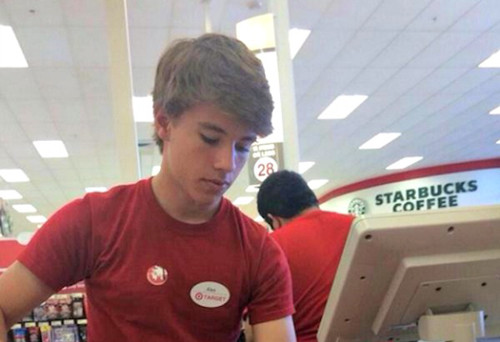If a tree falls in a forest and no one is around to put it online, does it actually happen? The answer, suggested by Syzygy’s wrap-up of Internet happenings in 2014, is no. If it doesn’t happen online, it doesn’t – or may as well not – happen.
In 2014, the Internet became the absolute arbiter of reality. Drunk on selfie-culture and armed with smartphones, life-trackers, GoPros and drones, every life moment was logged. From surreal athlete experiences in #SochiProblems to the rise to fame of random cashier #AlexFromTarget, life happened when it was posted online.
Even in moments of intimacy, lives were logged. Witness #FirstKissVideo logging a series of first embraces online. Or take the #TheFappening publicly logging privately logged nude uploads from celebrity accounts. What #TheFappening taught us about ourselves is that like celebrities, we feel a new need to upload and log every aspect of our selves online; hackerazzi and security risks notwithstanding.
And what about fame? Can fame happen today without happening on the Internet? Not if you are Kim Kardashian, whose bootylicious PR stunt was not an attempt to break into Hollywood but to #BreakTheInternet. Human charity too now lives online, made popular in the #IceBucketChallenge as a form of ‘conspicuous compassion’.
If it doesn’t happen online, it doesn’t – or may as well not – happen.
So here’s the thing about Syzygy’s #20Things 2014; it’s not that the Internet is everywhere (we knew that), it’s that the Internet increasingly defines everything, including ourselves. No more an adjunct or derivative part of our lives, the Internet defines who we are. The European Court of Justice tacitly acknowledged as much with new #RightToBeForgotten legislation to manage reputations that are now built and destroyed by Google search results, not deeds. The #FacebookExperiment rammed home this new reality-defining power of the Internet by demonstrating how it could even control our emotions.
As the Internet becomes the defining arbiter of reality, there are big opportunities in marketing. Brands have long helped people extend, expand, and strengthen their sense of self, but now marketers have the prospect of assisting digitally. In a world where we increasingly define ourselves through our digitally extended selves, the marketing opportunity is to help people in digital identity construction.
Viewed from this perspective, Amazon’s 2014 purchase of #TwitchTV for $970m was a smart investment; TwitchTV helps digital identity construction by allowing gamers to project their gaming prowess online. Similarly, Microsoft will see their purchase of #Minecraft developers Mojang as an opportunity to build on the passion and creativity of 100 million gamers – an endeavour not without risk. Meanwhile, the monster $25bn #AlibabaIPO shows how e-commerce companies are becoming much more than stores, supporting communities, tribes and individual online identities. It’s not ‘I shop, therefore I am’; it’s ‘I shop online, therefore I am’.
In sum, if 2013, was the year of the selfie, then 2014 was the year of the digitally ‘extended self’, the year when the digital extensions of ourselves took control and began to truly define us. What happened on the Internet in 2014 was us; we happened on the Internet.






